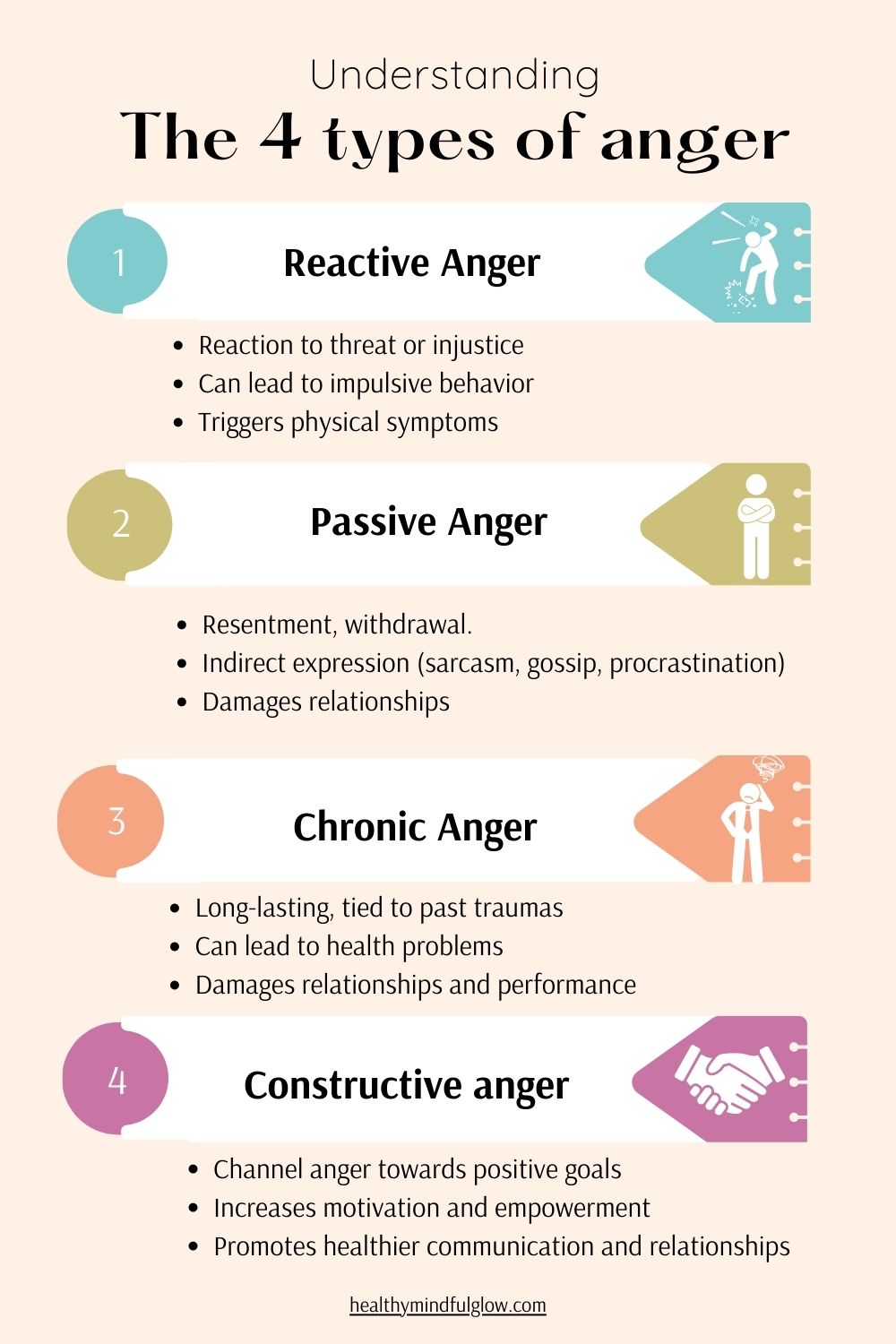Have you ever found yourself feeling angry for what seems like no reason at all? Maybe you’re stuck in traffic and you’re running late for an important meeting, or you’re dealing with a difficult co-worker who just can’t seem to get on the same page as you. Whatever the situation, anger is a natural emotion we all experience from time to time.
Managing that anger can be tough. If so, we’ve got just the thing for you: anger journal prompts. By using journal prompts for anger, you can gain valuable insights into your emotional state and develop effective strategies for managing your anger.
Whether you’re dealing with a difficult boss, a frustrating partner, or just the daily stresses of life, anger management journal prompts can help you find a sense of calm and control during chaos.
In this article, we’ll look at some of the best journal prompts for anger management, as well as tips for getting started with journaling. From identifying triggers and patterns to healthily expressing your emotions, journal prompts for anger can help you take charge of your emotional well-being and mental health. So grab a pen and paper and let’s get started with some anger journaling prompts.

Understanding Anger: What it is and Why it Matters
Have you ever felt like you’re about to explode with anger? Maybe you’re dealing with a rude customer service rep, dealing with a relationship breakup or stuck in traffic when you’re already running late. Whatever the trigger, anger is a natural emotion we all experience from time to time.
It’s that fiery feeling that bubbles up inside us when we feel threatened or frustrated. But what exactly is anger, and what purpose does it serve in our emotional lives? Essentially, anger is a response to a perceived threat or injustice. It’s our body’s way of preparing us to fight or flee when we feel like we’re in danger.
Did you know that there are different types of anger? Yup, it’s true! Anger can take many different forms depending on the situation and the person.

One type of anger is reactive anger, which is a response to a specific event or situation. For example, you might feel reactive anger if someone cuts you off in traffic. Reactive anger can have negative consequences, such as damaging relationships, harming one’s health, and escalating conflicts.
Another type of anger is passive anger, which is more subtle and involves holding in your anger and resentment rather than expressing it. This type of anger can be just as damaging as reactive anger if not dealt with.
There’s also chronic anger, which lingers for a long time and can negatively affect your health and well-being, such as high blood pressure, heart disease, depression, anxiety, and other stress-related disorders.
Finally, there’s constructive anger, which is anger that is expressed healthily and can lead to positive change. This type of anger can be a powerful force for personal growth and social justice.
While anger can be a helpful emotion in some situations, it can also be harmful if it’s not managed effectively. That’s why it’s important to learn how to identify and manage our anger healthily. One of the best ways to identify and manage anger is by journaling for anger management.
Journal Prompts for Exploring the Root Causes of Your Anger
Anger can have many different causes and triggers, but by exploring the root causes of our anger, we can gain a deeper understanding of ourselves and our emotional responses.

Anger journaling is a powerful tool for this exploration, use these angry writing prompts to help uncover triggers, patterns, and underlying emotions.
- What events or situations trigger my anger, and why?
- Are there certain people in my life who tend to trigger my anger more than others? If so, what specific behaviors or actions trigger me?
- What is my typical response when I feel angry? Do I lash out or withdraw? How does this response affect me and those around me?
- Have I ever felt angry about something that, in hindsight, seems insignificant or trivial? What might this say about the underlying causes of my anger?
- Are there patterns or themes in my life that seem to contribute to my anger? For example, do I tend to feel more angry when I’m stressed or overworked?
- Have I ever tried to suppress or ignore my anger? If so, how did this impact my emotional wellbeing?
- What values or beliefs do I hold that might influence how I experience and express anger?
- How does my past experience with anger shape my current feelings and behaviors? Are there unresolved issues from my past that may be contributing to my anger?
- What are some of the physical sensations or signs that I experience when I feel angry? How can I use this information to better understand my anger?
- What steps can I take to become more self-aware and mindful of my anger triggers and responses? How can I use this awareness to better manage my anger in the future?
Journal Prompts for Identifying Triggers and Patterns
Understanding triggers and patterns in our anger is crucial for managing our emotions. Anger journaling is a powerful tool for this exploration, helping us identify specific situations or events that make us feel angry and physical and emotional signs accompanying our anger.

So grab a pen and paper, and let’s explore the world of identifying triggers and patterns through these journal prompts for anger.
- What are some situations or events that consistently make me feel angry? Are there any commonalities between these triggers?
- How do I typically react when I feel angry? Do I lash out or withdraw? What impact does this response have on me and those around me?
- Who are the people in my life that tend to trigger my anger? What specific behaviors or actions trigger me?
- What are some past experiences that still bring up feelings of anger for me? What can I learn from these experiences?
- Are there any recurring themes or patterns in my life that seem to contribute to my anger? For example, do I feel more angry when stressed or overwhelmed?
- How do I typically communicate when I feel angry? Am I assertive or aggressive? How does this impact my relationships and interactions with others?
- What are some of the physical sensations or signs that I experience when I feel angry? How can I use this information to identify my triggers and patterns?
- What are some unmet needs or desires that may be contributing to my anger? How can I address these needs in a healthy way?
- How does my thought process and perception of a situation influence my feelings of anger? Are there alternative perspectives I can take that might reduce my anger?
- How do my core values and beliefs influence my experience of anger? Are there values that align with my anger or conflict with it? How can I reconcile any conflicts in my beliefs to better manage my anger?
Journal Prompts for Different Types of Anger
Use the following anger journal prompt ideas to better understand the type of anger you’re experiencing, as well as the specific triggers and patterns that contribute to your anger. This self-awareness can help you develop a more effective anger management plan that addresses your unique needs and challenges.

- What are the physical sensations that accompany my anger? Am I experiencing tension, tightness, heat, or other physical sensations?
- What are the emotional signs that I’m experiencing anger? Am I feeling irritable, frustrated, resentful, or something else?
- What are the specific thoughts or beliefs that are contributing to my anger? Am I feeling misunderstood, disrespected, or threatened in some way?
- What are the specific situations or triggers that consistently lead to my anger? Am I more likely to feel angry in certain environments, with certain people, or in response to certain actions?
- What is the intensity of my anger on a scale of 1-10? How does this intensity vary based on the situation or trigger?
- What is the duration of my anger? How long does it typically last before subsiding?
- Am I experiencing reactive or proactive anger? In other words, am I responding to a specific situation or event, or is my anger more generalized or anticipatory?
- Am I experiencing passive or aggressive anger? Am I suppressing my anger or lashing out at others?
- What is the underlying cause of my anger? Am I feeling hurt, scared, or powerless in some way?
- What type of anger management techniques have been effective in the past? Can I use these techniques to manage my anger, or must I try something new?
Journal Prompts for Expressing Your Anger in a Healthy Way
Expressing anger in a healthy way is crucial for our emotional wellbeing and maintaining healthy relationships.

By exploring healthy expressions of anger through these anger journal prompts, we can manage our emotions and reduce the negative impact of unmanaged anger on our physical and emotional health and relationships.
- What are some healthy ways to express anger that feel authentic to me? For example, do I find it helpful to talk things out with a friend or family member, or do I prefer physical exercise to release my anger?
- How can I communicate my anger assertively rather than aggressively? What strategies can I use to express my anger calmly and respectfully?
- What are some non-verbal ways to express my anger in a healthy way? For example, can I write out my feelings in a journal, or take deep breaths to calm myself down?
- What are some healthy outlets for my anger that I can turn to when I feel triggered or overwhelmed? For example, can I channel my anger into a creative project, or engage in a physical activity like running or boxing?
- How can I use my anger to motivate positive change in my life? Are there areas of my life where I feel stuck or unfulfilled, and can my anger be a catalyst for positive action?
- What are some strategies for calming down when I feel angry? For example, can I practice mindfulness meditation or take a walk in nature to help soothe my emotions?
- How can I differentiate between healthy and unhealthy expressions of anger? What are some warning signs that I might be crossing the line into unhealthy territory?
- What healthy coping mechanisms can help me manage my anger in the long term? For example, can I cultivate a regular self-care routine or seek out therapy or counseling?
- What are some positive role models for expressing anger in a healthy way? Are there people in my life or public figures who model healthy expressions of anger that I can learn from?
- How can I use humor to diffuse or express my anger in a healthy way? Are there ways to find the humor in a situation and use it to take the edge off my anger?
Journal Prompts for Forgiveness and Letting Go
Journaling about forgiveness and letting go can help us release anger and resentment, gain clarity and perspective, and move towards a greater sense of inner peace and healing. It’s a powerful tool for self-reflection, personal growth, and freedom from the emotional weight of past hurt and negativity. Use the following journaling prompts for anger to write about forgiveness.

- What does forgiveness mean to me, and why is it important in my life?
- Who do I need to forgive in my life, and why have I struggled to let go of my anger towards them?
- What are some of the emotional and physical benefits of forgiveness, both for myself and for others?
- What are some strategies for cultivating compassion and empathy towards those who have hurt me? How can I shift my perspective to see their humanity and struggles?
- What are some self-forgiveness practices that I can use to release guilt and shame from past mistakes or regrets?
- What are some ways that holding onto anger and resentment may be holding me back in my personal or professional life? How can forgiveness help me move forward?
- How can I use gratitude and appreciation to help me forgive and let go of anger towards others? Can I focus on the positive aspects of the person or situation to help shift my emotions?
- What are some mindfulness practices that can help me release attachment to negative emotions and cultivate a sense of peace and calm?
- What are some ways that forgiveness can be a powerful act of self-care and self-love? How can I use forgiveness to cultivate a greater sense of compassion and love towards myself?
- What are some actions I can take to show forgiveness and repair damaged relationships with others? How can I use forgiveness to move towards greater understanding and connection with those around me?
Journal Prompts for Cultivating Gratitude and Positive Emotions
Journaling about gratitude and positive emotions is important when getting over anger because it helps shift our focus towards positivity and creates a more balanced emotional landscape. It can also improve our physical and emotional health, reducing stress and boosting well-being. By cultivating gratitude and positivity through journaling, we can create a sustainable practice of emotional self-care that supports our healing and growth.

- What are some things in my life that I am grateful for right now? How do these things bring joy and positivity into my life?
- What are some positive memories or experiences from my past that I can reflect on to bring me feelings of gratitude and joy?
- What are some things about myself that I am proud of or grateful for? How can I cultivate more self-love and appreciation?
- What are some positive affirmations or mantras that I can use to boost my mood and cultivate positivity?
- What are some acts of kindness or generosity that I can perform for others to spread positivity and gratitude?
- What are some things in my life that I take for granted? How can I shift my perspective to see these things as gifts to be grateful for?
- What are some ways that I can use mindfulness to cultivate a greater sense of gratitude and positivity in my daily life?
- What are some ways that I can incorporate gratitude into my daily routine, such as through gratitude journaling or practicing gratitude before meals?
- What are some things in nature that bring me feelings of gratitude and awe? How can I connect more deeply with the natural world to cultivate positive emotions?
- What are some ways that I can use positive visualization to cultivate a sense of gratitude and joy in my life? For example, can I visualize my dreams and goals as already accomplished to bring me feelings of happiness and positivity?
The Benefits of Journaling for Anger Management
Journaling is a great tool to help you manage your anger and boost your emotional well-being.
When you write down your thoughts and feelings, you can gain insight into your emotions and identify patterns and triggers that make you feel angry. Plus, journaling is a great way to get all those pent-up emotions out and express yourself in a safe and healthy way.

Journaling has also been shown to have a ton of benefits. It can reduce stress, improve sleep, and even boost your immune system. So if you’re dealing with chronic anger or just looking for a way to cope with everyday stress, give journaling for anger a try. It might just change your life!
How to Get Started with Journaling for Anger: Tips and Tricks
Are you ready to give journal writing for anger management a try? Here are some tips and tricks to help you get started!
First things first, find a journal that speaks to you. It could be a fancy leather-bound notebook or a simple spiral-bound notebook from the dollar store. It’s all about finding something that you’ll be excited to write in. And speaking of writing, find a pen that feels good in your hand. Some people prefer ballpoint pens, while others like the smooth flow of a fountain pen. You can even grab some post it notes or some stickers to get you excited about your journal routine. Experiment with different options until you find what works for you.

Next, find a quiet and comfortable place to write. This could be a cozy corner of your bedroom or a park bench outside. The important thing is to find a place where you won’t be distracted or interrupted. And if you’re feeling stuck or don’t know what to write, try setting a timer for 10-15 minutes and just write whatever comes to mind. Don’t worry about spelling or grammar, just let the words flow.
Another tip is to make journaling a daily habit. Try to set aside some time each day to write in your journal, even if it’s just 5-10 minutes. This will help you build consistency and make journaling a natural part of your routine. And remember, journaling isn’t just about writing down negative thoughts and emotions. It can also be a place to record positive experiences, express gratitude, or set goals for the future.
Finally, don’t be too hard on yourself. Journaling is a personal journey, and there’s no right or wrong way to do it. Some days you might write pages and pages, while other days you might only write a sentence or two. That’s okay! The important thing is to keep showing up and making space for yourself to process your emotions. So grab your journal and pen and let’s get started!
How to Use Your Journal to Develop a Personalized Anger Management Plan
You can use your anger journal to develop a personalized anger management plan. By reviewing past entries, you can identify patterns and triggers that consistently lead to anger. With this information, you can create a plan of action to address these triggers and manage your emotions more effectively.

For example, you may notice that you often feel angry when you’re sleep-deprived or haven’t eaten well. With this knowledge, you can develop a plan to prioritize self-care and ensure you’re getting enough rest and nourishment. Alternatively, you may notice that certain people or situations consistently trigger your anger. With this information, you can develop a plan to avoid or minimize these triggers, or practice assertive communication to manage the situation more effectively.
To create a personalized anger management plan, you can review your anger journal and ask yourself:
- What are your triggers for anger?
- How do you typically respond to these triggers?
- What strategies have worked in the past to manage your anger?
- What new strategies or tools can you incorporate into your daily routine to manage your anger more effectively?
- How can you hold yourself accountable for practicing these strategies regularly?
By answering these questions and developing a personalized plan of action, you can proactively manage your anger and cultivate a greater sense of control and well-being in your life.
Additional Resources for Managing Anger: Books, Apps, and More.
In conclusion, managing anger is a critical component of maintaining emotional well-being and healthy relationships. While anger is a natural emotion, unmanaged anger can have a detrimental impact on our physical and emotional health. Fortunately, there are many resources available to help us manage our anger, including books, apps, and other tools.
Books:
- “The Anger Management Workbook for Men” by Aaron Karmin
- “The Dance of Anger: A Woman’s Guide to Changing the Patterns of Intimate Relationships” by Harriet Lerner
- “Anger Management for Dummies” by W. Doyle Gentry
- “The Gift of Anger: Use Passion to Build Not Destroy” by Marcia Cannon
Apps:
- Calm – meditation and sleep app
- Headspace – guided meditation app
- Pacifica – mindfulness and mood tracking app
- Stop, Breathe & Think – mindfulness and meditation app
Tools:
- Anger journal for self-reflection and personal growth
- Stress ball or other tactile objects for physical release of anger
- Deep breathing exercises to manage anger in the moment
- Assertive communication techniques to express anger in a healthy way
By incorporating these resources into our daily routine, we can develop a personalized anger management plan that meets our unique needs and challenges. Whether through journaling, mindfulness, self-care, or other strategies, the key is to proactively manage our anger and cultivate a greater sense of emotional balance and well-being. With these additional resources, we can continue to learn, grow, and thrive in our personal and professional lives.
Final Thoughts
Journaling can be a great way to recognise anger triggers and patterns and work out strategies that are useful in coping with your anger. I hope these journal prompts help you reflect and grow in your personal journey.
If you’re looking for more journal prompts to achieve clarity in other aspects of your life, check out my articles on self-compassion journal prompts, birthday journal prompts and the best journal prompts for anger.






